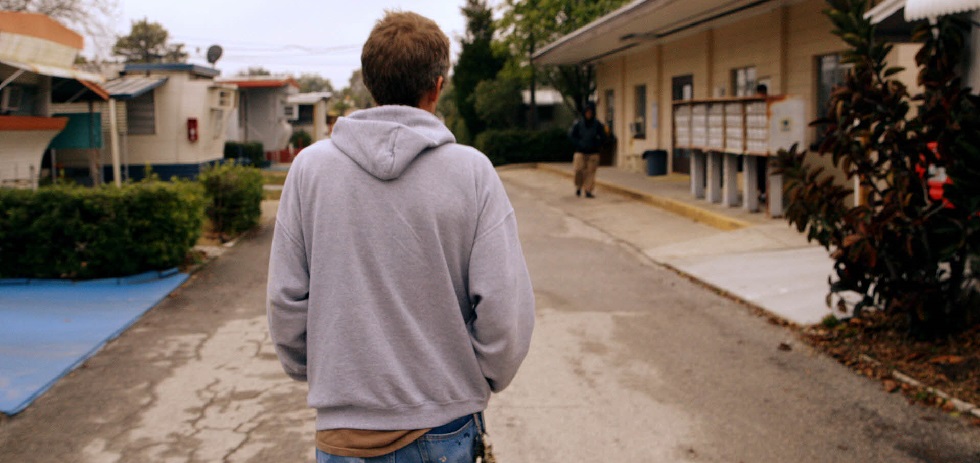Frida and Lasse Barkfors’s debut documentary Pervert Park is an exploration of the inhabitants of a half-way house for recently released sex offenders.1 As odd as it may sound, this small, somewhat simplistic documentary manages to pack more punch in its message than most documentaries of the past decade, tackling a touchy subject with an air of authority and a point of view that is contrary to the prevailing group-think on the issue. At its heart, the film serves an indictment of the way that the US judicial system (and society at large) treats people convicted of sex-related crimes and the social hurdles that hinder rehabilitation, and it does so without ever falling into a trap of victim blaming, nor does it fall prey to attempts to absolve its participants of their crimes. It’s an interesting concept for a documentary and, thankfully, the Barkfors execute it near perfectly.
The titular park is Florida Justice Transitions, a trailer park exclusively populated by registered sex offenders which was opened by the mother of a convicted “pervert” after her son found it difficult to find permanent housing that would accommodate him. Right off the bat it’s important to note that these people are not all pedophiles and that their crimes vary drastically in severity. Some were incarcerated because of one-off sting operations on casual hook-up websites and appear more akin to victims of entrapment than sufferers of any deep-seated sexual deviancy, while the backstory of others is, predictably, much more dark, often difficult to stomach and unconscionable. The park acts as a support network to recent parolees regardless of the severity of their crimes, providing counseling and treatment, as well as the company of other (hopefully) ex-offenders who are also attempting to rehabilitate and reintegrate back into society. Suffice to say, without wishing to ruin the film’s conclusion, inhabitants of the park have a far lower recidivism rate than the national average. Through a series of interviews we meet a number of registered sex offenders, who guide us through their personal lives, views and, ultimately, their compulsions. The documentary, while definitely affecting in and of itself, is most powerful in its takeaway message, one that is reinforced throughout the film – that our current practice of attacking sex offenders when they are most vulnerable (as they attempt to reintegrate into the community) is ultimately harmful; not only does it increase the chance of recidivism, it is a major factor fostering the continuation of cycles of abuse. Pervert Park serves as a reminder that these people are humans, and all humans all fallible.
Once again, it is important to keep in mind that at no moment does the film apologize for the crimes of these individuals, nor does it ever blame the victims of their crimes – in fact, in this area it is most firm; all of these people have done the wrong thing and, ignoring a few scattered new arrivals, all are fully aware and regretful of their actions. They are not asking for our forgiveness or understanding so much as they are asking us to separate them as individuals from their disorders. Without this, through the societal prevalence of vitriolic hatred of all sex offenders, there is no room for these people (who clearly want to change) to access important treatment and rehabilitation, something with ultimately detrimental effects. This isn’t the first text to explore these themes,2 nor will it be the last given the current socio-political climate that surrounds these issues, however talking about them is an important first step. To this end, Pervert Park is an excellent jumping off point, only occasionally off the mark in its discussion of sex-related offences – a tangential “men’s rights”-esque diatribe about male-on-male rape in prisons from a counselor feels out of place – and near-perfect at conveying the human element behind the perpetrators of these terrible crimes.
Formally, there’s some interesting stuff going on here too; you’d be forgiven for mistaking the opening moments – a tracking handheld shot following one of the main interviewees as he walks down the street at dusk – for those an early ’00s American indie film. In fact, the framing and colour work in most scenes appear unusual for this sort of a documentary, conveying a sense of optimism in a situation of stacked odds and despair. There’s some pretty shocking revelations too, that are sure to infuriate even those unconvinced by the overall argument of the documentary. Of particular note is the existence of an app (presumably utilized by the worst, most alarmist and hateful people alive) that utilizes the user’s GPS to alert them of all registered sex offenders in the area, complete with photographs, lists of their crimes, and (most shockingly) the addresses of their homes and workplaces.
While its line of argument will not convince everyone, particularly in a socio-political climate with deeply entrenched views about these issues, it’s good to see a film that attempts to foster some new discussion, especially one this well made. Frida and Lasse Barkfors have tackled a lot of territory that would have been very easy to mishandle, and showcase an ease that only comes with a sense of distance and strong personal conviction in their views. Hopefully Pervert Park finds a home somewhere where people will actually give it a chance, it’s a mind-opening documentary that injects an air of dialogue into an issue that nobody seems to want to talk about.

